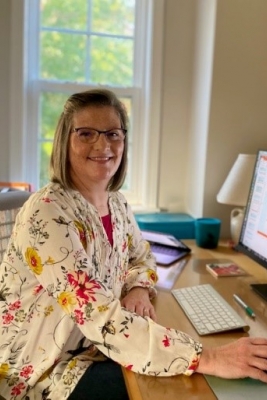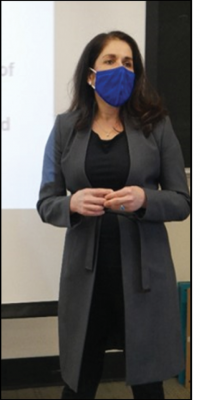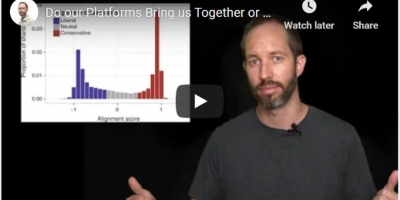Although COVID-19 has radically altered higher education around the globe, one thing has not changed: Duke Sociology professors guide students to and through opportunities for discovery and engagement.
The pandemic forced Duke educators and students to pivot quickly to new modes of teaching and learning. Sociology faculty approached this challenge by creating new and better ways to deliver content and inspire students to reach their full intellectual and professional potential.
First-year students enrolled in Professor Martha Reeves’ SOCIOL 197: Freedom and the Market meet in real time every Tuesday and Thursday afternoon. Masked students sit six feet apart while others join the conversation about free markets via Zoom. A giant screen at the front of the room allows students scattered across continents to virtually experience a Duke classroom together for the first time. In breakout rooms and break out groups, students discuss the assigned readings and use that scholarly knowledge to problem solve real-life puzzles.
Despite the physical distance that separates them, you can still sense a deep connection in the room. These first- year students began their university careers in the midst of a pandemic. They are missing so much of campus life, but are dedicated to following strict COVID procedures, knowing the Duke community will get through this together.
Professor Maria Febbo teaches SOCIOL 210: Social Problems online asynchronously. Students engage with information at their own pace, providing the flexibility students in different time zones need to decide when, where, and how to learn. At the beginning of the semester, Dr. Febbo had concerns about the lack of connection typical in asynchronous learning environments. She wanted to create an atmosphere for interaction instead of isolation.
Although the live collaboration and instant feedback of a face-to-face class cannot occur, Dr. Febbo creates personalized educational experiences. She gives handwritten comments on student papers and checks in immediately with students who miss assignments. She encourages frequent communication and organized virtual roundtable discussions, based on student availability, on the Black Lives Matter movement, the pandemic, mass incarceration, poverty, and the opioid epidemic. With careful planning, asynchronous learning can eliminate distance and time barriers and allow faculty to cater to individual learning needs.
“Honestly, I just couldn’t imagine starting the semester on Zoom, without ever having seen my students in person first,” says Professor Jen’nan Read. She teaches the in-person section of SOCIOL 250: Medical Sociology that focuses on immigration and health. Dr. Read adapted the course in response to the relentless pace of the condensed fall semester and the challenges of living during deep racial, economic, and political divisiveness. Dr. Read minimizes students’ stress by building in breaks during the semester, removing extraneous assignments, structuring regular opportunities for student interaction, and reminding students we will get through this together.
To enrich student opportunities to address pressing social issues, the class partnered with World Relief Durham, a non-profit organization that provides refugee resettlement services. Although COVID-19 prevented them from working directly with the organization’s clients, the students met with senior leadership, analyzed data, developed policy pitches, and designed infographics to prepare the new arrivals and their community for a healthier integration into life in the United States.
Professor Chris Bail revamped his course, SOCIOL 367: Data Science and Society, for the online environment. After the emergency change to online teaching in March 2020, Dr. Bail knew students were suffering from Zoom fatigue. “Online group discussions with more than a handful of people are extremely draining and challenging,” he says. “That is why I decided to try one-on-one meetings, on the model of places like Oxford University, where individual meetings between faculty and students are built into the college experience.”
Each week, students watch a pre-recorded lecture about a social science topic and another video guiding them through the programming needed for the weekly lab assignment. Students learn how to pose social science research questions, then collect and analyze data from digital sources to help answer those questions. Each week, Dr. Bail meets one-on-one with every student via Zoom to discuss readings, lab work, or student projects. Dr. Bail states, “I love the opportunity to get to know each student better and tailor the course to their interests or needs.”
In the midst of a pandemic and widespread social unrest, Duke sociology faculty offer learner-centered courses that give students flexible options for content delivery and engagement. COVID-19 challenges universities to improve the quality and relevance of teaching. Duke sociology faculty are meeting that challenge.




